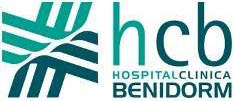IMFUTEC
Técnicas Avanzadas de Fusión de Imagen Médica
ONCOTIC se compone de 6 sub-proyectos donde el denominador común es el uso de tecnologías TIC para mejorar el diagnóstico, tratamiento o seguimiento de patologías oncológicas. IMFUTEC es uno de esos sub-proyectos en el que, concretamente, se busca mejorar el diagnóstico y seguimiento del cáncer de cerebro a través de una aplicación que permite obtener y analizar las sustancias moleculares que lo componen. Su objetivo es conocer de una manera objetiva y prematura el estado del tejido cerebral frente a una posible enfermedad neurológica.
El tratamiento moderno de los pacientes con cáncer implica un mejor conocimiento de aspectos tales como las alteraciones moleculares responsables de la aparición del fenotipo tumoral, la realización de diagnósticos precoces, la monitorización de la evolución de la masa tumoral en respuesta al tratamiento y la adecuación de las estrategias terapéuticas a las alteraciones moleculares. En ese contexto, IMFUTEC aborda el desarrollo de una herramienta software para el cálculo y análisis de imágenes moleculares obtenidas mediante espectroscopia por resonancia magnética (ERM) de multivoxel. Gracias a la técnica multivoxel, el clínico puede estudiar no sólo la respuesta temporal de los metabolitos del cerebro, sino también su distribución espacial, con el objetivo de conocer de un modo preciso la zona donde se encuentra el tumor.
Haciendo uso de esa herramienta, se pueden analizar e integrar, de manera interactiva, diversas señales obtenidas mediante espectroscopia de protones para, posteriormente, generar mapas de colores pertenecientes a las sustancias de las diferentes áreas anatómicas sometidas a estudio. Los resultados obtenidos de la espectroscopia pueden fusionarse con imágenes anatómicas 3D de alta resolución y, dependiendo del estudio en cuestión, con imágenes de Resonancia Magnética Funcional (RMF) y/o PET. Ello constituye un hito importante para el diagnóstico y la detección prematura de enfermedades como el alzhéimer o la esclerosis múltiple.
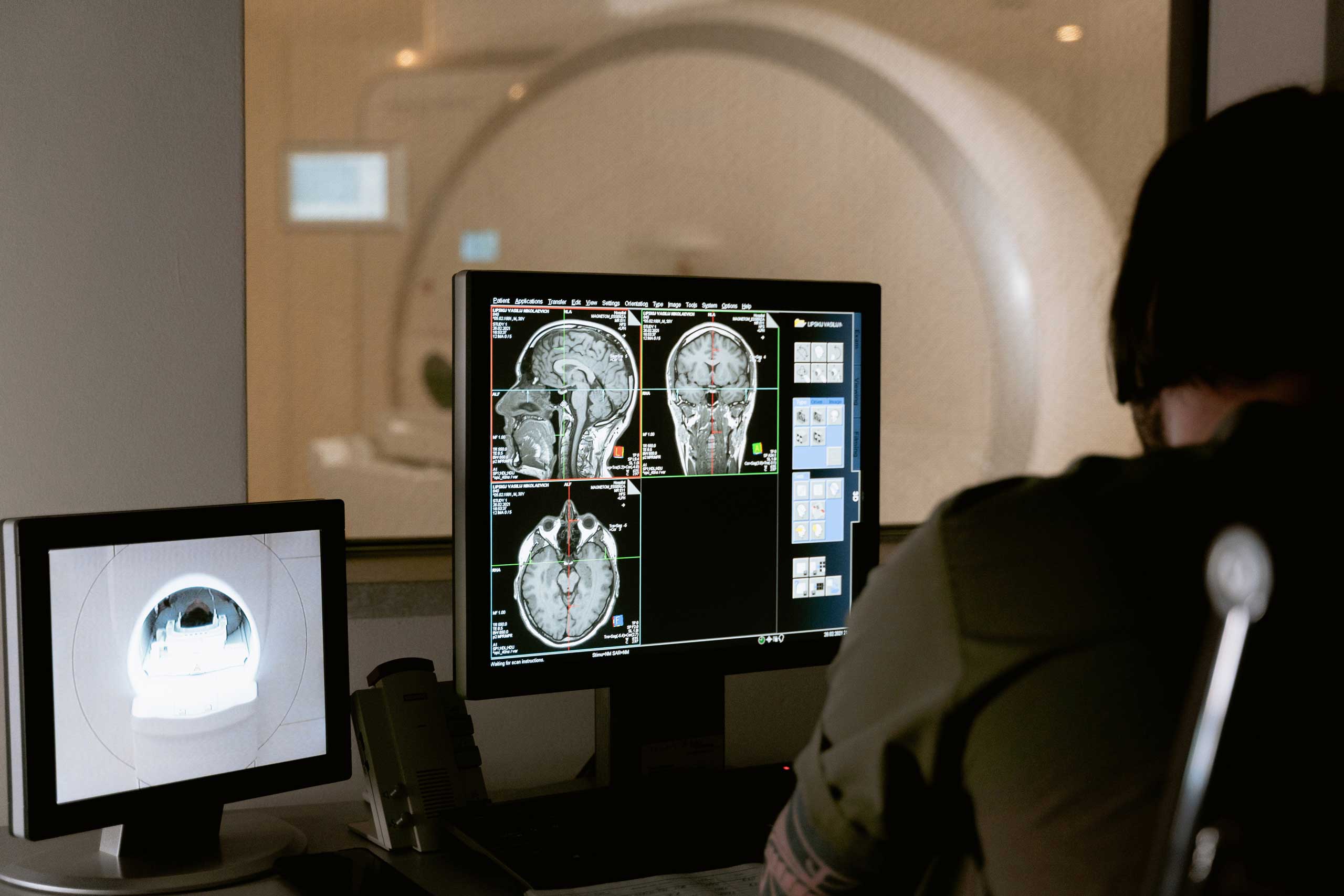
ONCOTIC project is composed of 6 sub-projects where the common denominator is the use of ICT technologies to improve diagnosis, treatment or monitoring of oncological pathologies. IMFUTEC is one of those sub-projects in which, specifically, it seeks to improve the diagnosis and monitoring of brain cancer through a software tool that allows to obtain and analyze the molecular substances that comprise it. Its objective is to know in an objective and premature way the state of the brain tissue in the presence of a possible neurological disease.
The current treatment of patients with cancer implies a better knowledge of aspects such as the molecular alterations responsible for tumor phenotype appearance, the ability of early diagnoses, the monitoring of tumor mass evolution in response to treatment and the adequacy of therapeutic strategies to molecular alterations. In this context, IMFUTEC approaches the development of a software tool for the analysis of molecular images obtained through multi-voxel magnetic resonance spectroscopy. Thanks to the multi-voxel technique, clinicians can study not only the temporal response of brain metabolites, but also its spatial distribution, in order to know in a precise way the area where the tumor is located.
Making use of this tool, several signals obtained by proton spectroscopy can be analyzed and integrated in an interactive way to subsequently generate color maps belonging to the substances of the different anatomical areas under study. The results obtained from the spectroscopy can be fused with high resolution 3D anatomical images and, depending on the study in question, with Functional Magnetic Resonance (FMR) and/or PET images. This is an important milestone in the diagnosis and early detection of diseases such as Alzheimer’s or multiple sclerosis.
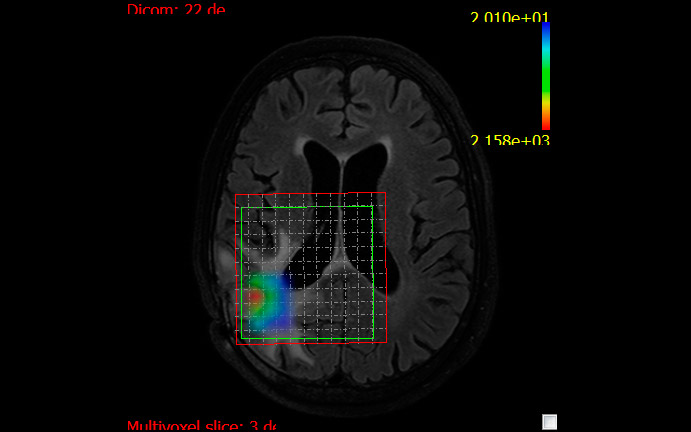
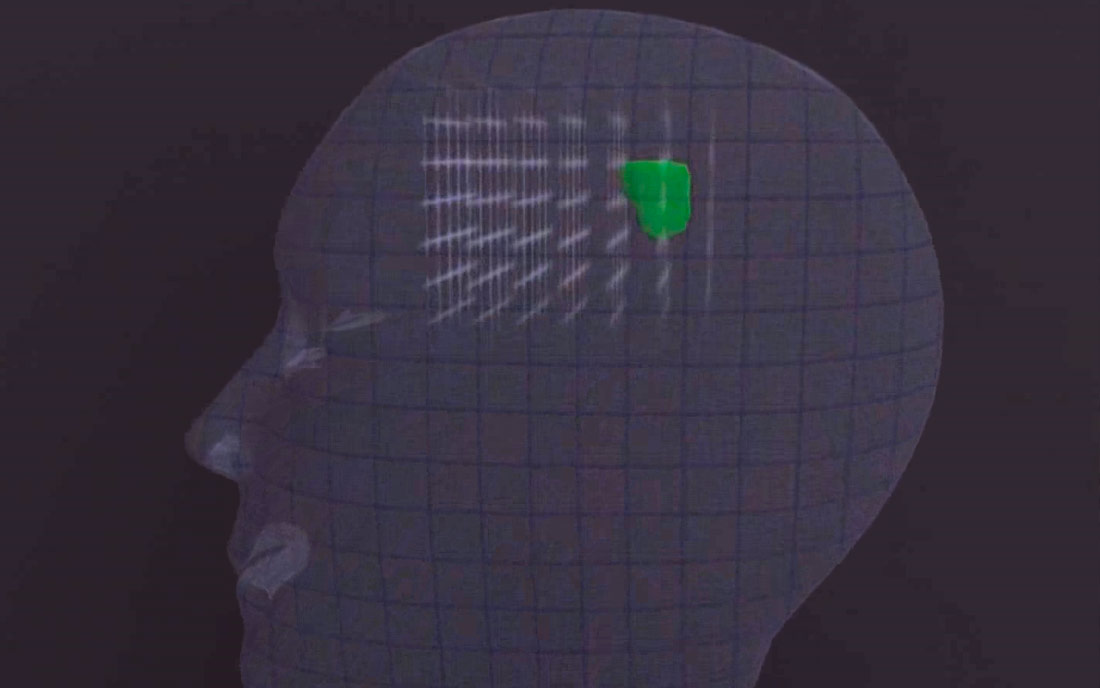
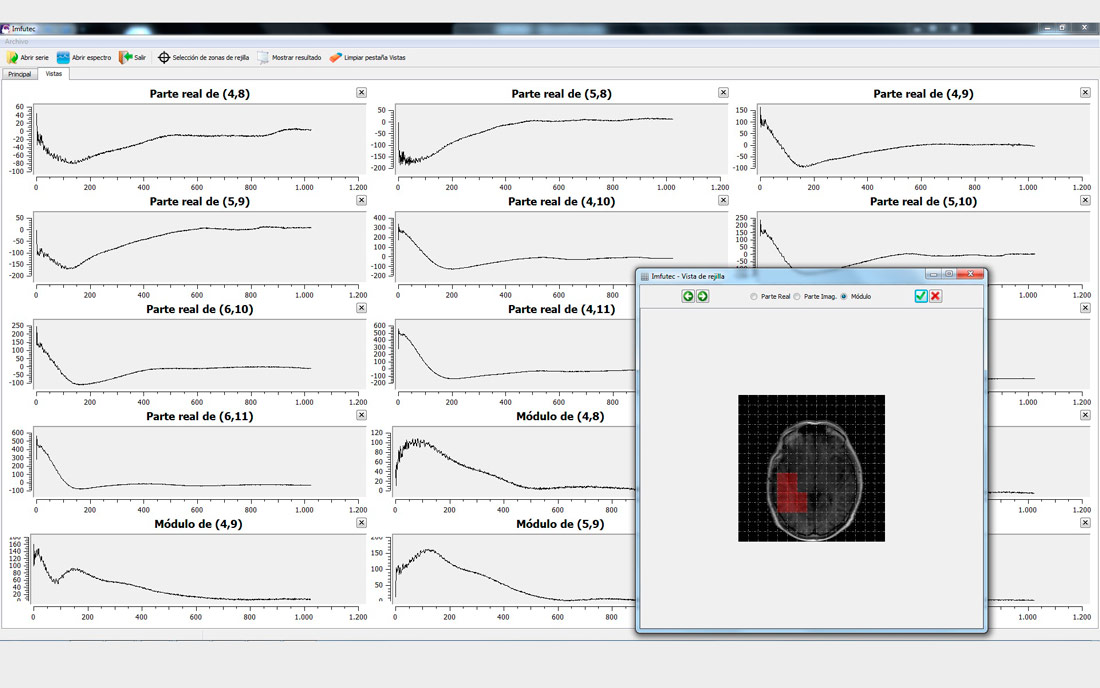
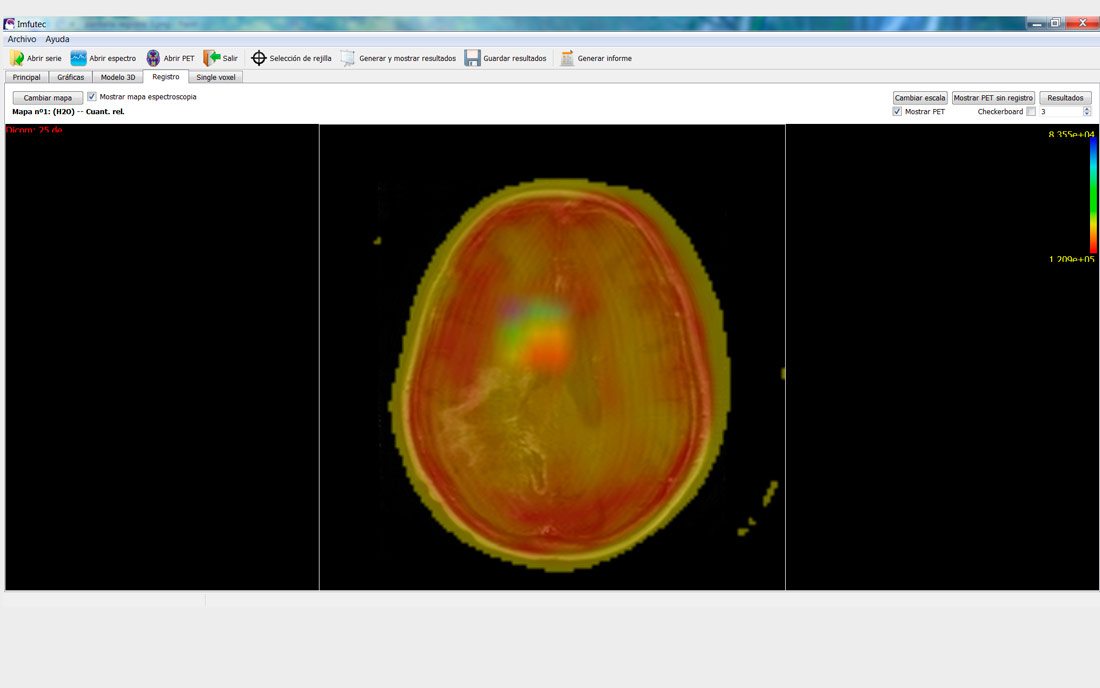
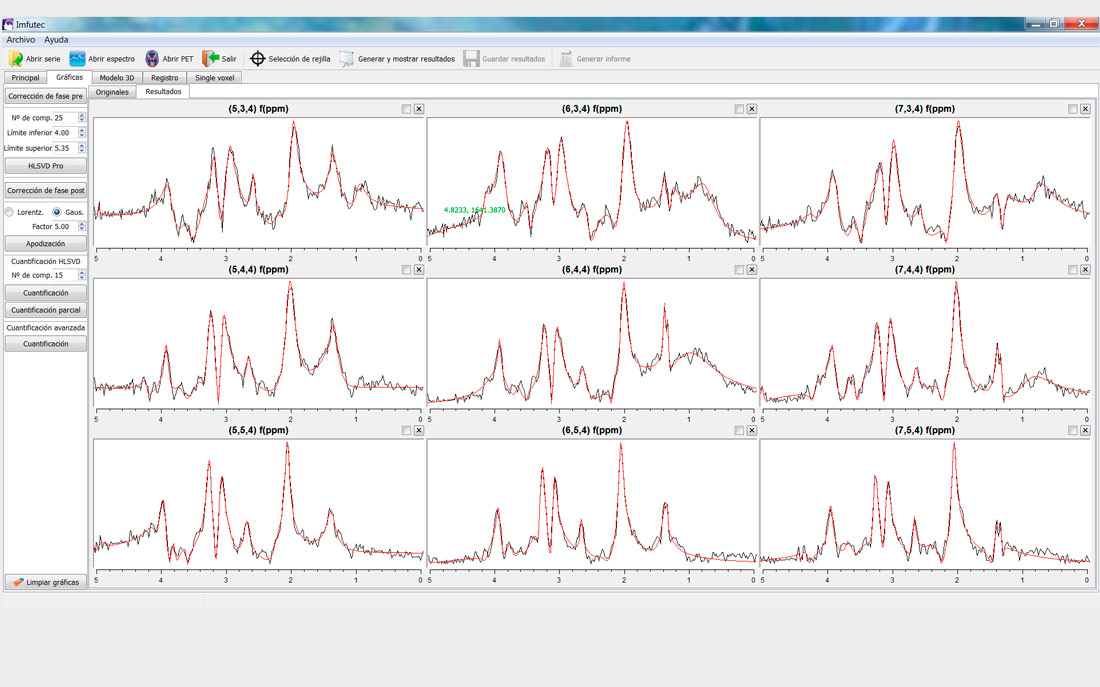
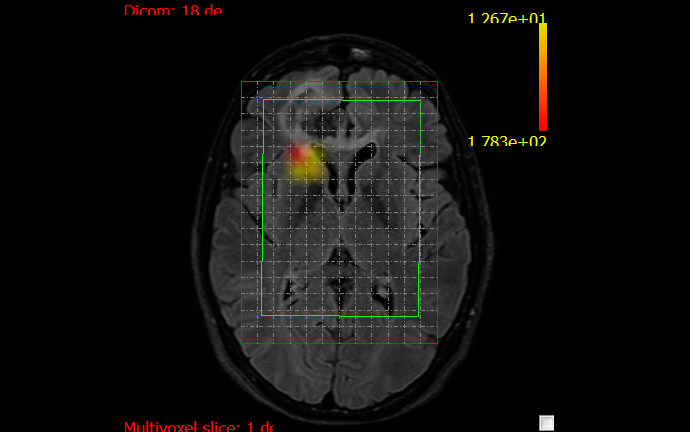
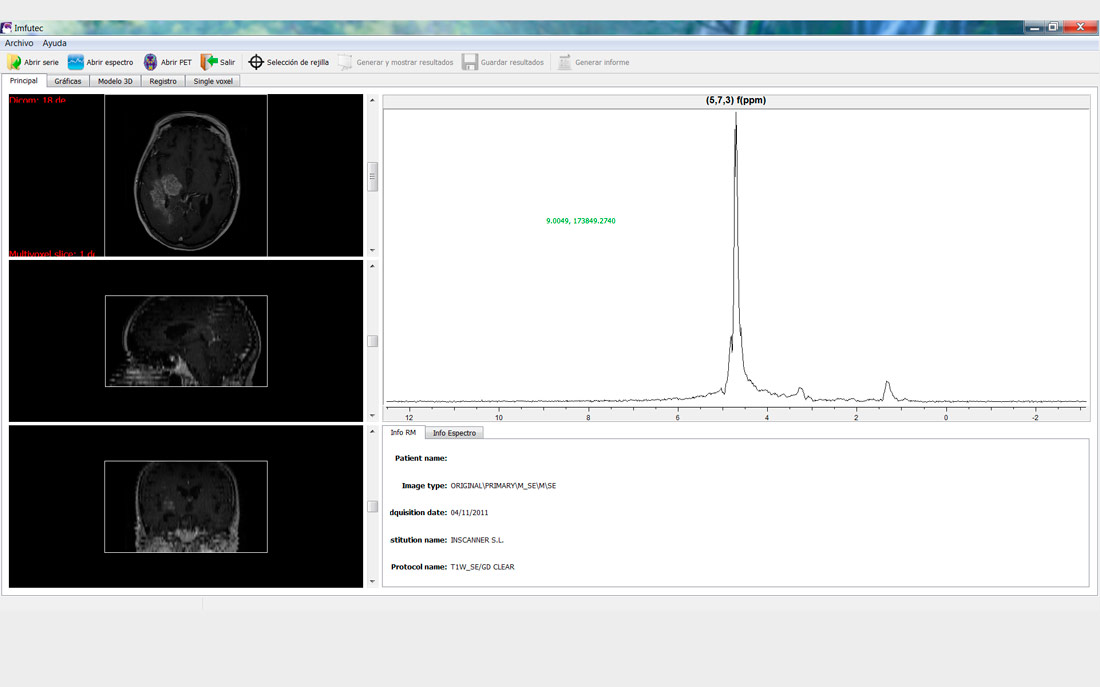







Socios
